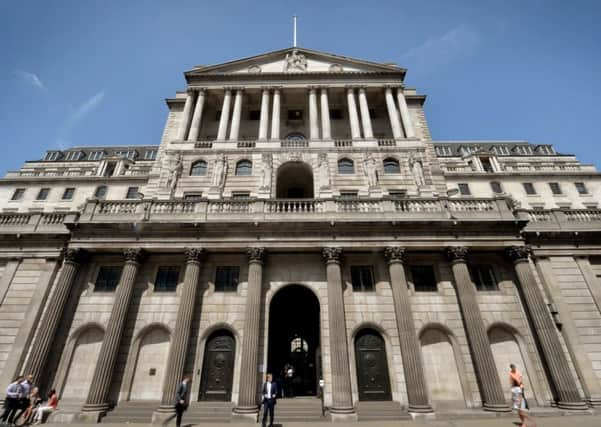Trade gap shock as BoE keeps rates powder dry


The Bank’s monetary policy committee (MPC) voted eight to one to keep rates unchanged at 0.5 per cent, where they have been for six years.
Minutes of the meeting show that Ian McCafferty was again the only member to vote for a quarter-point increase in borrowing costs, “given his view that the path of domestic costs was more likely to lead to inflation exceeding the target in the medium term than was embodied in the committee’s collective November projections”.
Advertisement
Hide AdAdvertisement
Hide AdThe decision came ahead of the expected first lift in US interest rates since 2009 by the Federal Reserve next week. Fed chair Janet Yellen has indicated that a rise in US rates is a near certainty when policymakers decide on 16 December.
The rise in US rates would be the first since 2006 and there are fears it will trigger market disruption, also coming at a time when the global economy and China’s growth have been slowing.
Nick Dixon, investment director at Edinburgh-based life and pensions group Aegon UK, said: “Although MPC members who voted to hold rates had one eye on the US Fed’s decision next week, the MPC’s forward guidance indicate that rates will remain low for ‘some time’. With flat prices in the UK and slowing global growth, we don’t expect any interest rate changes until well into 2016.”
Meanwhile, official data showed that the UK trade gap in goods and services was a hefty £4.1 billion in October.
The deficit was much higher than the City had expected, a widening of £3.1bn from September. Howard Archer, chief UK and European economist at IHS Global Insight, commented: “These latest numbers on the deficit are pretty awful.”
David Kern, chief economist at the British Chambers of Commerce, said: “Although the main reason for the wider deficit in October was a surge in imports, it is clear our exports are not growing fast enough to close the gap.”